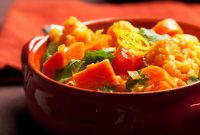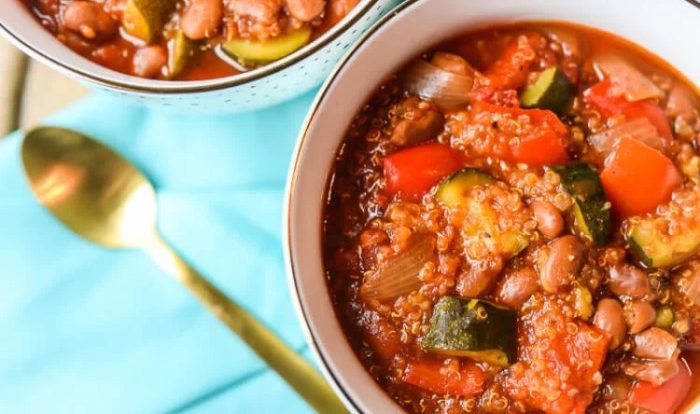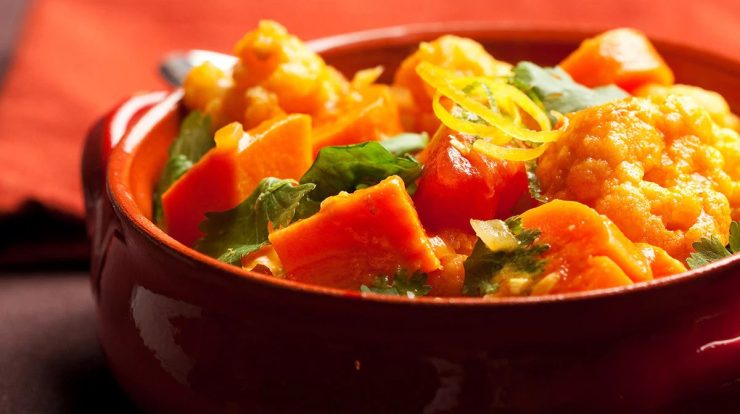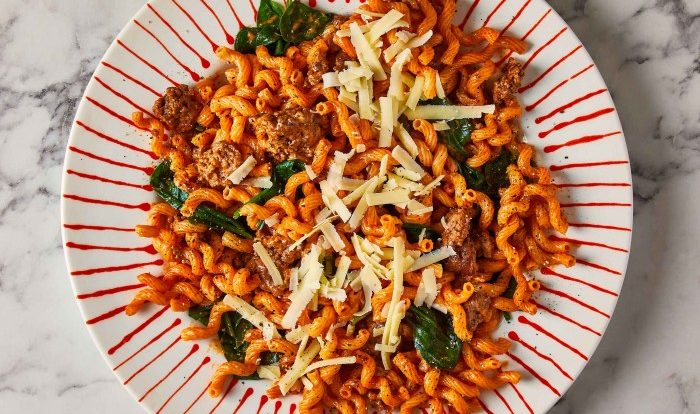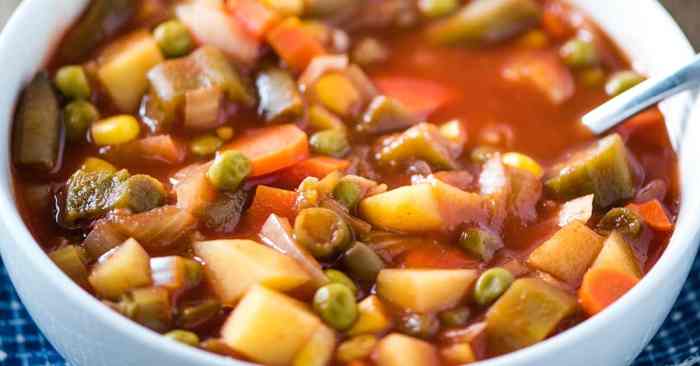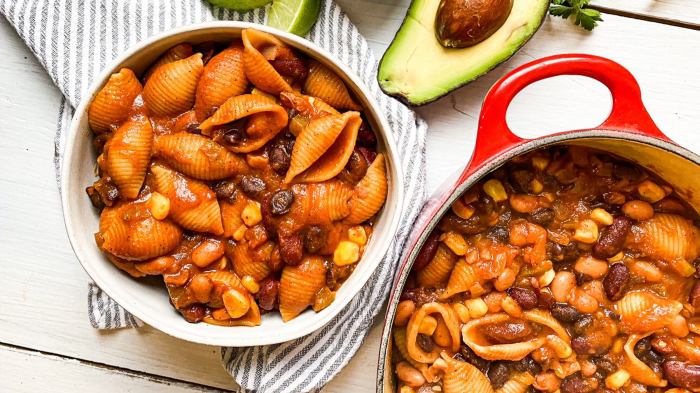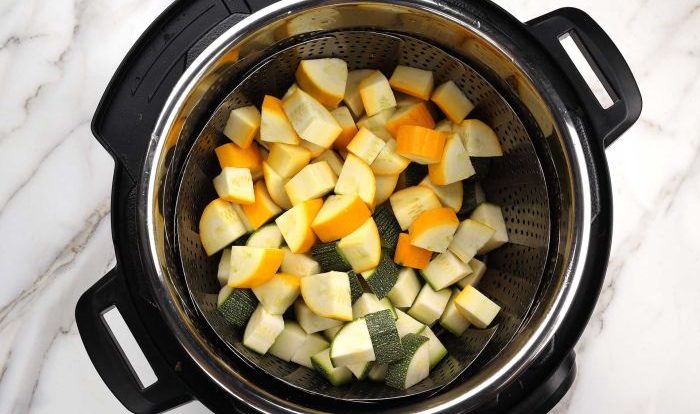Embark on a culinary adventure with vegan mushrooms recipe, where the versatility and nutritional prowess of mushrooms take center stage. From hearty soups to savory stir-fries, discover how these meaty marvels elevate plant-based cooking to new heights.
In this comprehensive guide, we’ll delve into the world of vegan mushrooms, exploring their nutritional benefits, cooking techniques, and a delectable array of recipes. Prepare to be inspired as we unlock the secrets of creating flavorful and satisfying vegan dishes that showcase the wonders of mushrooms.
Introduction
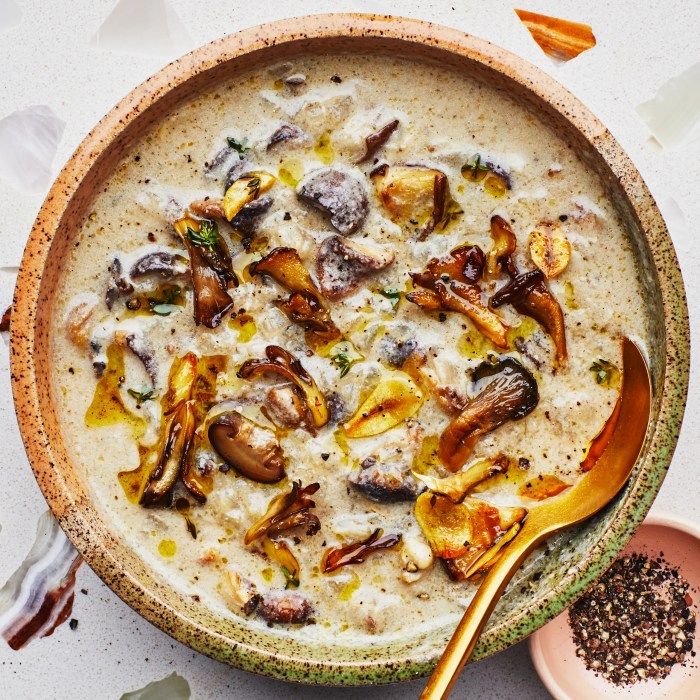
Vegan mushrooms, as a fundamental component of a plant-based diet, have gained increasing recognition for their nutritional value and culinary versatility. These fungi, devoid of animal products, offer a rich source of essential nutrients, making them an indispensable choice for individuals seeking a wholesome and compassionate lifestyle.
Mushrooms possess an array of health benefits, including their low-calorie content, high fiber content, and abundance of antioxidants. Their meaty texture and umami flavor make them an excellent substitute for meat in various culinary preparations, further enhancing their appeal among vegans and non-vegans alike.
Nutritional Benefits
- Low in calories:Mushrooms are an ideal food for weight management, containing only a fraction of the calories found in animal-based protein sources.
- High in fiber:The dietary fiber in mushrooms aids digestion, promotes satiety, and helps regulate blood sugar levels.
- Abundant in antioxidants:Mushrooms are rich in antioxidants, which protect cells from damage caused by free radicals and may reduce the risk of chronic diseases.
- Excellent source of B vitamins:Mushrooms provide a significant amount of B vitamins, essential for energy production, nerve function, and overall well-being.
- Good source of minerals:Mushrooms contain various minerals, including potassium, selenium, and zinc, which play crucial roles in maintaining electrolyte balance, immune function, and cellular health.
Versatility in Cooking
- Versatile culinary applications:Mushrooms can be sautéed, roasted, grilled, or added to soups, stews, and salads, offering a wide range of culinary possibilities.
- Umami flavor enhancer:The savory umami flavor of mushrooms enhances the taste of various dishes, making them an excellent addition to both vegan and non-vegan recipes.
- Meat substitute:The meaty texture of mushrooms makes them an ideal substitute for meat in vegan dishes, providing a satisfying and flavorful alternative.
Types of Mushrooms for Vegan Recipes
Mushrooms are a versatile and nutritious ingredient that can add depth and flavor to any vegan dish. There are many different types of mushrooms available, each with its own unique characteristics and flavors.
Some of the most popular edible mushrooms for vegan cooking include:
Button Mushrooms
- Small, white, and mild-flavored
- Button mushrooms are a good all-purpose mushroom that can be used in a variety of dishes.
Cremini Mushrooms
- Larger than button mushrooms, with a slightly darker brown color
- Cremini mushrooms have a more intense flavor than button mushrooms and are a good choice for soups, stews, and sauces.
Portobello Mushrooms
- Large, flat mushrooms with a deep brown color
- Portobello mushrooms have a meaty texture and are a good choice for grilling, roasting, or stuffing.
Shiitake Mushrooms
- Medium-sized mushrooms with a dark brown cap and a white stem
- Shiitake mushrooms have a rich, umami flavor and are a good choice for stir-fries, soups, and sauces.
Oyster Mushrooms
- Large, fan-shaped mushrooms with a white or gray color
- Oyster mushrooms have a delicate flavor and are a good choice for soups, stir-fries, and salads.
Basic Techniques for Cooking Vegan Mushrooms
Cooking vegan mushrooms involves fundamental techniques that enhance their flavor and texture. Mastering these techniques will enable you to create delectable mushroom-based dishes that showcase their versatility.
Preparing mushrooms involves slicing or dicing them into desired shapes and sizes. Slicing mushrooms thinly produces delicate pieces that cook quickly, while dicing them creates smaller pieces that provide a more substantial texture.
Sautéing
Sautéing is a common technique for cooking mushrooms. Heat a pan or skillet over medium heat and add a drizzle of oil. Add the sliced or diced mushrooms to the pan and cook until they are browned and tender. Season with salt and pepper to enhance their flavor.
Marinating
Marinating mushrooms before cooking can infuse them with additional flavors. Combine your preferred marinade ingredients, such as olive oil, herbs, spices, and a touch of acidity (such as lemon juice or vinegar), in a bowl. Add the mushrooms to the marinade and allow them to soak for at least 30 minutes, or up to overnight.
Marinating helps tenderize the mushrooms and allows the flavors to penetrate deeply.
Vegan Mushroom Recipes
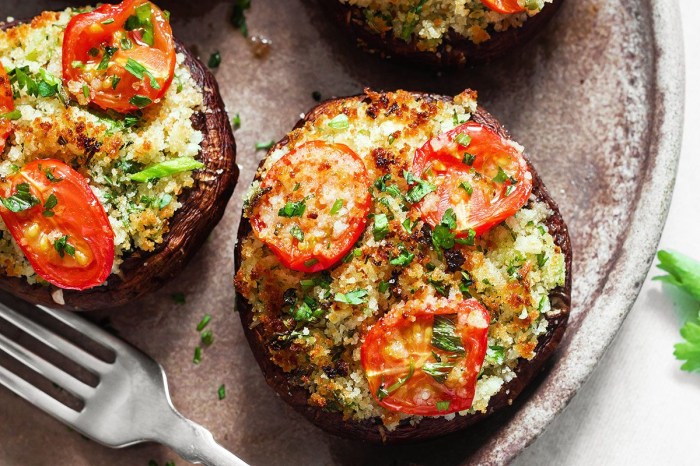
Expand your culinary horizons with an array of vegan mushroom recipes that cater to diverse cuisines and dish types. From hearty soups to flavorful stir-fries, these recipes will tantalize your taste buds and nourish your body with plant-based goodness.
To streamline your culinary journey, we’ve organized the recipes into convenient categories based on cuisine or dish type. Additionally, each recipe is presented in a structured table format, providing a clear overview of ingredients, step-by-step instructions, and nutritional information.
Vegan mushroom recipes are a great way to enjoy the umami-rich flavors of mushrooms without the use of animal products. If you’re looking for a delicious and healthy breakfast option, you can try a low carb pancakes recipe . These pancakes are made with almond flour and coconut flour, and they’re a great way to start your day with a boost of protein and fiber.
Once you’ve tried these pancakes, you can come back to vegan mushroom recipes and explore other delicious ways to cook mushrooms.
Soups and Stews
Immerse yourself in the comforting warmth of vegan mushroom soups and stews. These hearty dishes are perfect for chilly evenings or as a nutritious lunch option. They offer a rich and flavorful broth brimming with the earthy goodness of mushrooms, complemented by a medley of vegetables and herbs.
| Recipe Name | Ingredients | Instructions | Nutritional Information |
|---|---|---|---|
| Creamy Mushroom Soup | Mushrooms, onion, garlic, vegetable broth, plant-based milk, cornstarch, salt, pepper | Sauté mushrooms and vegetables, add broth and milk, simmer until tender, blend until smooth. | Calories: 150, Protein: 5g, Fat: 5g, Carbs: 20g |
| Hearty Mushroom Stew | Mushrooms, carrots, celery, potatoes, vegetable broth, herbs, spices | Sauté mushrooms and vegetables, add broth and seasonings, simmer until vegetables are tender. | Calories: 200, Protein: 10g, Fat: 10g, Carbs: 30g |
Nutritional Considerations
Vegan mushroom recipes offer a wealth of nutritional benefits, making them an excellent choice for individuals seeking a plant-based diet. Mushrooms are low in calories and fat, while being rich in protein, fiber, vitamins, and minerals.
Mushrooms are particularly notable for their high content of B vitamins, including riboflavin (vitamin B2), niacin (vitamin B3), and pantothenic acid (vitamin B5). These vitamins play crucial roles in energy metabolism, nerve function, and hormone production. Additionally, mushrooms are a good source of selenium, an essential mineral that supports immune function and thyroid health.
Protein Content
Mushrooms contain a significant amount of protein compared to other plant-based foods. On average, 100 grams of cooked mushrooms provide approximately 3-4 grams of protein. While this may not be as high as animal-based proteins, it is still a valuable contribution to a vegan diet.
Fiber Content
Mushrooms are an excellent source of dietary fiber, which is important for digestive health, blood sugar control, and weight management. One cup of cooked mushrooms provides approximately 2-3 grams of fiber.
Role in Meeting Daily Nutrient Requirements
For vegans, incorporating mushrooms into their diet can help meet daily nutrient requirements. Mushrooms provide essential vitamins and minerals that may be lacking in other plant-based foods. For example, mushrooms are a good source of vitamin D, which is often difficult to obtain from plant-based sources.
By consuming a variety of mushrooms, vegans can ensure they are getting the nutrients they need to maintain good health and well-being.
Flavor Pairings and Accompaniments: Vegan Mushrooms Recipe
Unlocking the full potential of vegan mushroom dishes lies in the art of pairing them with complementary flavors and ingredients. Mushrooms, with their inherent umami richness, serve as a versatile canvas for a symphony of tastes.
Herbs and spices can elevate the earthy notes of mushrooms. Thyme, rosemary, and sage add a touch of warmth and depth, while oregano and basil provide a vibrant freshness. Spices like paprika, cumin, and chili powder lend an exotic touch, enhancing the savoriness of mushrooms.
Sauces and Marinades
Sauces and marinades not only add flavor but also enhance the texture of mushrooms. A simple garlic and herb marinade infuses mushrooms with aromatic depth. Soy sauce, tamari, or coconut aminos lend a salty and umami kick. For a touch of sweetness, honey, maple syrup, or agave nectar can be added to the marinade.
Presentation and Serving Suggestions
Elevate the visual appeal of your vegan mushroom dishes with thoughtful presentation techniques. Arrange mushrooms on platters or in bowls, creating a colorful and textural masterpiece. Consider using fresh herbs, edible flowers, or roasted vegetables as garnishes to enhance the aesthetics.
Experiment with creative serving styles to showcase the versatility of mushrooms. Serve them as appetizers in bite-sized portions, such as crispy mushroom skewers or grilled mushroom bruschetta. For entrees, present hearty mushroom-based stews, curries, or pasta dishes in elegant bowls or on rustic platters.
As side dishes, offer sautéed mushrooms with flavorful herbs and spices, or roast them with other vegetables for a colorful and nutritious accompaniment.
Appetizers, Vegan mushrooms recipe
- Mushroom Bruschetta: Top toasted bread slices with a flavorful mushroom mixture sautéed with herbs, garlic, and a hint of lemon.
- Crispy Mushroom Skewers: Marinate mushrooms in a flavorful sauce and skewer them with vegetables or tofu for a fun and easy appetizer.
- Mushroom Ceviche: Create a refreshing and vegan ceviche by marinating thinly sliced mushrooms in a zesty citrus marinade.
Entrees
- Mushroom Bourguignon: A classic French stew made with mushrooms, red wine, and vegetables, served over mashed potatoes or pasta.
- Mushroom and Lentil Curry: A hearty and flavorful curry made with mushrooms, lentils, and a blend of aromatic spices.
- Mushroom and Spinach Lasagna: A vegetarian twist on the classic lasagna, featuring layers of mushrooms, spinach, and a creamy vegan béchamel sauce.
Side Dishes
- Sautéed Mushrooms with Herbs: Sauté mushrooms with fresh herbs, such as thyme, rosemary, and parsley, for a simple and flavorful side dish.
- Roasted Mushrooms with Vegetables: Roast mushrooms with other vegetables, such as carrots, onions, and bell peppers, for a colorful and nutritious side dish.
- Mushroom Patties: Form mushroom mince into patties and pan-fry them until golden brown. Serve with a side of your favorite dipping sauce.
Health Benefits of Consuming Vegan Mushrooms
Incorporating vegan mushrooms into a diet may offer several potential health benefits. Mushrooms are a rich source of antioxidants, which help protect cells from damage caused by free radicals. They also contain anti-inflammatory compounds that can help reduce inflammation throughout the body.
Mushrooms are also a good source of beta-glucans, which are a type of fiber that has been shown to boost the immune system. Studies have shown that consuming beta-glucans can help reduce the risk of colds and flu, and may also help improve the body’s response to infections.
Conclusion
In conclusion, vegan mushrooms are a versatile and nutritious ingredient that offers culinary diversity in plant-based cooking. Their versatility extends to various cooking methods, flavor pairings, and presentation styles, making them a valuable addition to any vegan kitchen.
The nutritional value of mushrooms makes them a healthy choice, providing protein, fiber, antioxidants, and essential vitamins and minerals. Their umami flavor and meaty texture enhance dishes, adding depth and richness to plant-based meals.
Health Benefits
Consuming vegan mushrooms has been associated with numerous health benefits, including reduced risk of chronic diseases, improved immune function, and support for cognitive health. Their high fiber content aids in digestion, while their antioxidants protect against cellular damage.
Closing Notes
As we conclude our exploration of vegan mushrooms recipe, it’s evident that these culinary gems offer a wealth of possibilities for plant-based enthusiasts. Their versatility, nutritional value, and ability to enhance flavors make them an indispensable ingredient in any vegan kitchen.
Whether you’re a seasoned vegan or simply curious about incorporating more plant-based foods into your diet, vegan mushrooms recipe provides a roadmap to creating delicious and nutritious dishes that will tantalize your taste buds and nourish your body.

